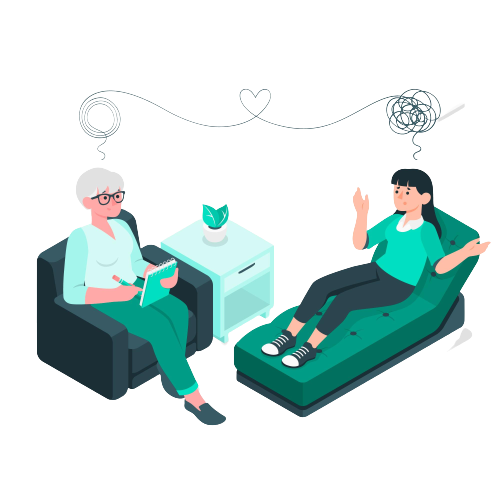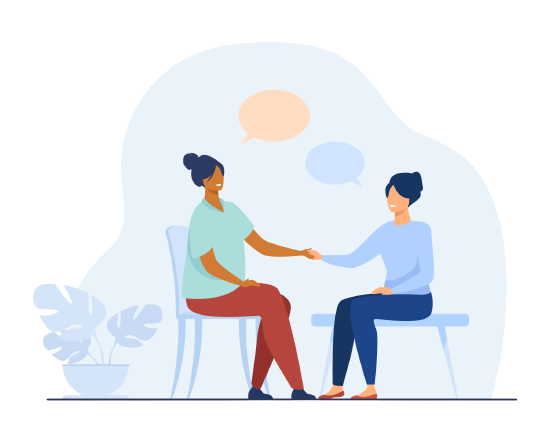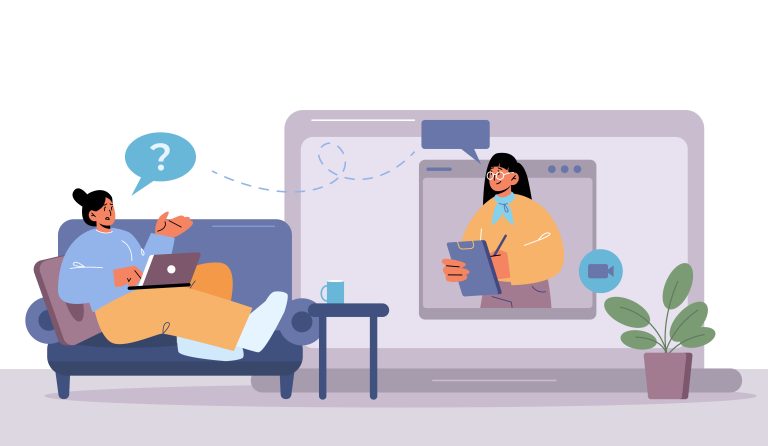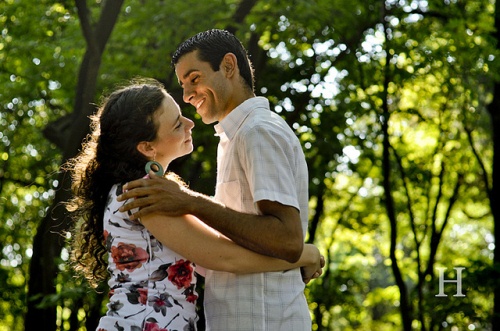
Trauma can create a lens through which you view the world as an unsafe, unpredictable, and unwelcoming place. This distorted view can extend to your relationships, making it challenging to find the safety and connection that others seem to find easily.
Therefore, trauma can affect your relationships by creating a barrier between you and the opportunity of co-creating a healthy, peaceful, loving, intimate relationship. If you find yourself stuck in this cycle, learning about the effects of trauma in relationships is key towards breaking free and nurturing wholesome, fulfilling, intimate relationships.
Signs Of Trauma In Relationships
Take a critical look at your relationships, and ask yourself what might be standing between you and the fulfilling connection you seek. It could be difficulties managing emotions, struggles with self-esteem, challenges in creating and sustaining connections, or trouble expressing thoughts and feelings during conflicts with your partner. Here are some ways trauma impacts your relationships:
- Trauma Can Cause Trust Issues In Relationships: If you are someone who has experienced the pain of betrayal from a previous relationship, you may find it challenging to trust your current partner. You may feel doubtful of their actions, and look out for signs of betrayal, and constantly worry about how they may betray you. Every healthy relationship is built on trust. Therefore, past trauma can often result in trust issues in your relationships.
- Trauma Can Make You Avoid Emotional Intimacy With Your Partner: If you withhold affection and feel uncomfortable in intimate relationships, it could be a way to protect yourself from the discomfort that emotional intimacy brings. This could show up as ghosting someone you are dating, avoiding deep, emotional conversations, and expressing your true feelings for your partner. Distance takes away the safety and comfort that intimacy brings to a relationship, making it challenging for you to feel fulfilled and content in your relationships.
- Trauma Can Cause Separation Anxiety In Your Relationships: Experiencing some level of emotional or physical abandonment in childhood, or from a previous relationship, can build a deep-rooted fear of it happening again. This can look like constantly worrying that a partner may leave, and constantly asking for reassurance from your partner. You may feel like your partner is too good for you, and that they will find someone better. You may feel empty, anxious, and hopeless without your partner’s presence. This can make it challenging for you to be yourself in relationships, causing a lot stress and possible conflicts in them.
- Trauma Can Make It Challenging To Manage Your Emotions: Trauma can make you feel like you are stuck in a rollercoaster of emotions. This can look like having intense mood swings, lashing out at your partner, shutting down or feeling emotionally numb, zoned out during conflicts. These extreme highs and lows can impact the stability and results in a strained relationship.
- Trauma Can Affect Your Attachment Styles: If you have been in an unhealthy family dynamic during childhood, you may notice a pattern developing in your present relationships. This can look like having a pattern of ending relationships abruptly, or being too close or clingy with your partners, or choosing emotionally unavailable partners. Sometimes, these tendencies may go unnoticed, and you may feel you are simply unlucky in love. But, if you notice them, you may find the answer, and a way to heal your past trauma, work on your attachment styles, and break this cycle of unhealthy relationships.
- Trauma Can Take A Toll On Your Self-Worth And Self-Esteem: Having a low self-esteem from past trauma could cause you to turn to your partner to seek their constant validation and approval. You may feel like only their opinion matters, forgetting the importance of having your own. You may place your partner on a pedestal, and this can create an imbalance in the power dynamic in your relationship. Also, a low level of self esteem can also make you push away your partner as you believe, deep down, that you don’t deserve them.
- Trauma Can Make Communicating With Your Partner Difficult: Do you struggle to express what you truly want in your relationships? Do you go ahead with whatever your partner wants, without really looking into what you want? These could be signs of communication challenges in relationships. Struggling with how you express your emotional needs and wants in a relationship could stem from having experienced verbal or emotional trauma or abuse during childhood. A lack of healthy communication can lead to misunderstandings and conflicts in your relationships.
- Trauma Can Make It Challenging To Think Of A Long-Term Relationship: Your past trauma can make you believe that you are undeserving of happiness and love. Relationships can feel unsafe, making it seem like all the pain of the past will resurface. Therefore, past trauma can make it challenging for you be in long-term relationships, and look into the future.

Contact Us
Counseling is a process that can help you learn more about yourself and your relationships.
Our Counselors are trained to help you with a wide range of concerns.
If you are interested in scheduling an appointment with us, please click the link below.
Healing From Trauma In Relationships Through Therapy
Trauma doesn’t make you a bad person-regardless of what your actions, thoughts, or even your partner may tell you. When trauma happens, your mind and body quickly get to finding ways to protect you by whatever means possible. But why?
Your mind and body does this to protect you from the trauma happening again. Thus, all of the behaviours you label as “bad” are, in fact, ways your body deemed okay as a response to what happened in the past. So, your tendency to shut down during arguments can be seen as a protective mechanism to save you from feeling attacked, hurt, or abandoned as you felt in the past.
But, these protective mechanisms can become counterproductive over time. These approaches to protect yourself can hold you back from experiencing true intimacy, which comes from being open, curious, and vulnerable with your partner.
Understanding your “bad” habits as protective mechanisms due to trauma can certainly feel challenging if you are doing it alone. Thus, taking help from a therapist, can be a good option to help you understanding your relationship patterns better. Here are some of the benefits of consulting a trauma-informed relationship counsellor:
- Gain insights into trauma-driven patterns affecting your relationship.
- Develop coping strategies to navigate triggers and enhance communication.
- Foster emotional intelligence, build trust, and work towards healing with personalized guidance from a trauma therapist.
Overcoming Trauma In Relationships: Some Self-Help Tips
The never-ending “side effects” of trauma may make a healthy and happy relationship feel like a distant dream. It can feel like you are destined to feel stuck and lonely. But, seeking help only requires some effort, curiosity, and introspection. Looking into your patterns, needs, and narratives around relationships can be done by yourself or a professional, like a relationship therapist.
If you are looking to start with simple ways to heal from past trauma from relationships, we have highlighted three ways for you:
- Mindfulness: Trauma can make staying in the present moment a struggle. This can cause communication issues, conflicts, and distance between you and your partner. Practicing mindfulness meditation, which helps you stay present in the here-and-now can be a great technique to focus and be engaged in the relationship. It can also help you become aware of your patterns, emotional reactions, and thoughts that negatively impact your relationship.
- Improve Communication Skills: Being able to communicate and articulate your feelings and needs are an underrated skill towards building a healthy relationship. Working on your communication skills by asserting your boundaries, needs, contribute towards a more open and transparent relationship, enhancing the trust between you and your partner.
- Self-Compassion: Sometimes, your negative patterns and reactions can make you feel like there is something inherently wrong, or flawed about you. But, remember, that your present actions are caused by what happened in the past, not because you are a bad person. When you are distressed, or low, remind yourself that you are a human deserving of love, and that you are capable of change. Practice self-compassion by looking at yourself with kindness and understanding.
Trauma has a way of convincing you that all your relationships will always follow the same, old painful script.
Your responses and reactions in relationships arising from trauma are like the layers of an onion, each one added to shield your inner core from the potential pain of another trauma. But just as we gently peel away the layers of an onion, compassionately shedding these protective layers in relationships allows your authentic self to emerge. It’s a process of unveiling, bringing forth the real you, and creating the opportunity for a happier, more genuine connection with your partner.
About the Author
This article was written by Parvathi Ganesan, Counselor at Inner Space. This article was consulted & approved by professional therapists practicing online therapy and counseling.
Learn More
Are you interested to read more about our Counseling services? Click below to know more.





